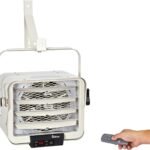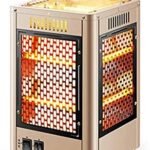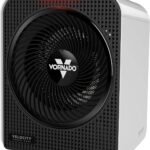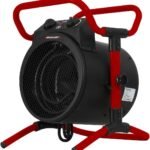You’re about to embark on an enlightening journey comparing gas fuelled and electric tankless water heaters. This article provides a robust comparison of these two forces in the world of home appliances, each with their unique benefits and challenges. From energy efficiency to installation convenience, your understanding of the strengths and weaknesses of both types of heaters will deepen. Brace yourself for an expanse of knowledge tailored to help you make the best choice for your household necessities.
Understanding Gas Fuelled and Electric Tankless Water Heaters
When it comes to providing hot water for your home, there are two main types of tankless water heaters: gas fuelled and electric. But what exactly are these, and how do they differ? We’re going to delve into their definitions, operating mechanisms, installation processes, and much more. This will enable you to make an informed decision when choosing the type best suited to your needs.
Definition of Gas Fuelled Tankless Water Heaters
Gas fuelled tankless water heaters, as the name suggests, rely on gas – either natural or propane – to heat the water. These units do not store hot water; instead, they heat water on demand, which can save you considerable energy and reduce your utility bills.
Definition of Electric Tankless Water Heaters
Electric tankless water heaters, on the other hand, rely on electricity to heat the water. Like their gas counterparts, they also work on-demand, heating water as it flows through the unit. Due to their design, they are often compact and can be installed in most places within your home.
The Operating Mechanism of Gas Fuelled and Electric Tankless Water Heaters
Both gas fuelled and electric tankless water heaters have distinct operating mechanisms that set them apart.
How Gas Fuelled Tankless Water Heaters Work
When you turn on a hot water tap in a home with a gas fuelled tankless water heater, cold water travels into the unit. The gas burner is then triggered and heats the water as it passes through a heat exchanger. The heated water is then delivered to your tap, providing you with hot water whenever you need it.
How Electric Tankless Water Heaters Work
With an electric tankless water heater, the flow sensor activates once a hot water tap is turned on. This initiates an electric element which heats up, warming the water that passes over it. You then get hot water delivered directly to your tap.
Installation of Gas Fuelled Vs Electric Tankless Water Heaters
The installation process for both types varies significantly.
Installation Process of Gas Fuelled Tankless Water Heaters
Installing a gas fuelled tankless water heater is a complex process generally requiring professional assistance. You may need to upgrade your gas line, venting system, or even the mounting space during this installation, which can be time-consuming.
Installation Process of Electric Tankless Water Heaters
In most cases, installing electric tankless water heaters is easier and less time-consuming. They are smaller than gas-powered units, require no venting, and can be installed in many locations in your home. However, you may need to upgrade your home’s electrical system to meet the unit’s power demand.
The Efficiency of Gas Fuelled Vs Electric Tankless Water Heaters
While both types are more energy efficient than traditional tank water heaters, their efficiencies differ.
Efficiency of Gas Fuelled Tankless Water Heaters
Gas fuelled tankless water heaters generally have an efficiency range of 80-85%. However, newer models with condensing technology can achieve efficiency rates up to 95%.
Efficiency of Electric Tankless Water Heaters
Electric tankless water heaters are extremely efficient, with an energy efficiency rate of almost 99%. This is because they lose very little heat during the heating process.
Cost Comparison between Gas Fuelled and Electric Tankless Water Heaters
Although initial costs can be formidable, in the long run, both types of water heaters have potential cost-saving benefits.
Purchase Cost of Gas Fuelled Vs Electric Tankless Water Heaters
The upfront costs for both types vary widely depending on the brand, model, and size. Generally, gas fuelled tankless heaters are more expensive to buy than their electric counterparts.
Installation Cost Comparison
Electric heaters are cheaper to install. Compared to the significant costs that can come with a complex installation process of gas heaters, which may include plumbing and venting modifications.
Long Term Cost-effectiveness
Despite higher initial costs, gas fuelled water heaters often prove to be more cost-effective in the long run due to the lower cost of natural gas compared to electricity.
Countering the Environmental Impact of Both Types of Tankless Water Heaters
With increasing awareness of environmental conservation, considering the environmental impact of your water heater is crucial.
Environmental Impact of Gas Fuelled Tankless Water Heaters
While gas fuelled heaters may have lower operational costs, they also produce greenhouse gases. However, models with higher efficiency can mitigate this impact.
Environmental Impact of Electric Tankless Water Heaters
Electric tankless water heaters do not emit greenhouse gases during operation. However, if the electricity supplying your home is sourced from coal-powered plants, the environmental benefits are negated.
Safety Concerns between Gas Fuelled and Electric Tankless Water Heaters
Both gas fuelled and electric tankless heaters come with their unique safety considerations.
Safety Precautions in Gas Fuelled Tankless Water Heaters
Given gas fuelled heaters burn gas, it’s crucial to ensure proper ventilation to avoid the possibility of carbon monoxide build-up. Regular inspections for leaks are also recommended.
Safety Precautions in Electric Tankless Water Heaters
Electric heaters have no risk of gas leaks or carbon monoxide poisoning. However, ensuring they are correctly wired and grounded helps avoid electrical issues.
Performance Comparison within Various Conditions
The performance of gas fuelled and electric tankless water heaters can vary depending on the conditions.
Performance of Gas Fuelled Tankless Water Heaters in Cold Conditions
As gas fuelled heaters burn gas to heat the water, they can handle any incoming water temperature making them useful in colder climates.
Performance of Electric Tankless Water Heaters in Cold Conditions
Electric heaters may struggle in colder climates, where incoming groundwater can be very chilly. This means they have to work harder and use more electricity to heat the water to the desired temperature.
Effect of Altitude on Both Gas Fuelled and Electric Tankless Water Heaters
Gas heaters may lose efficiency as they find it harder to draw in enough oxygen for combustion at higher altitudes. Conversely, electric heaters’ efficiency and performance are not impacted by altitude.
Lifespan and Maintenance of Gas Fuelled vs Electric Tankless Water Heaters
The lifespan and maintenance requirements of both also differ.
Average Lifespan of Gas Fuelled Vs Electric Tankless Water Heaters
Generally, gas fuelled heaters have a longer lifespan – about 20 years, compared to electric heaters, which last around 7-10 years.
Maintenance Requirements for Gas Fuelled Water Heaters
Gas fuelled heaters require more maintenance, including annual checks and inspections for gas leaks and venting issues.
Maintenance Requirements for Electric Tankless Water Heaters
On the other hand, electric heaters require less maintenance. Regularly removing scale build-up in the unit can prolong its lifespan.
Choosing the Right Heater for Your Needs
The right heater for you ultimately depends on your specific needs and individual circumstances.
Factors to Consider When Choosing Between Gas and Electric Tankless Heaters
Cost, efficiency, climate, and environmental impact are critical factors to consider when choosing between gas and electric heaters.
Understanding Your Specific Needs and Matching them to the Right Heater
Consider your hot water needs – how much hot water you need and when. Also, consider the setup and structure of your home, your budget, and whether you have access to natural gas.
In conclusion, both gas fuelled and electric tankless water heaters have their pros and cons. The best for you will depend on a variety of factors. Hopefully, this guide has provided you with a deeper understanding, helping you make an informed decision on what is right for you.









